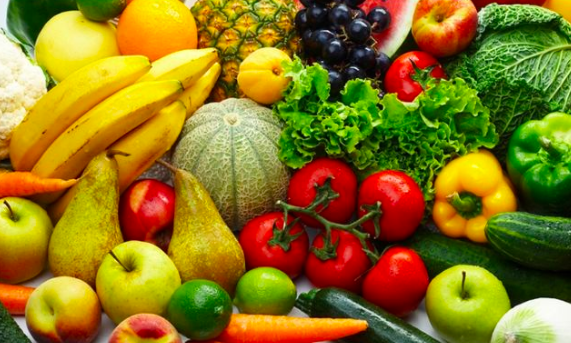
The Environmental Working Group (EWG) every year analyzes test data from the Agriculture Department to identify which fruits and vegetables are most and least contaminated with pesticide residue to produce a list they call the Dirty Dozen. This year’s list had a surprise entrant — kale — “more than 92 percent of conventionally grown kale samples had at least two or more pesticide residues. Some samples contained residues from as many as 18 different pesticides.” Here are some additional highlights from the report:
- More than 90 percent of samples of strawberries, apples, cherries, spinach, nectarines, and kale tested positive for residues of two or more pesticides.
- Kale and spinach samples had, on average, 10 to 80 percent more pesticide residue by weight than any other crop.
- Avocados and sweet corn were the cleanest. Less than 1 percent of samples showed any detectable pesticides.
- More than 70 percent of fruit and vegetable samples on the Clean Fifteen list had no pesticide residues.
The EWG also comes up with a list of the Clean Fifteen — fruits and vegetables with the least pesticide residues. The EWG notes also that “since 2012, the American Academy of Pediatricians Council on Environmental Health has emphasized that children’s exposure to pesticides should be as limited as possible because pesticide exposure during pregnancy and early childhood increases the risk of brain tumors, leukemia, neurodevelopmental defects, and other adverse birth outcomes.” The data the EWG analyzed is the result of tests conducted by the government, in which they found the residues of 225 different pesticides on fruits and vegetables that Americans eat every day, but note that the risk of consuming pesticide residue isn’t assessed by the government.
Why This Matters: Experts still recommend that you eat more fruits and veggies despite these pesticide residues. Fresh and whole (rather than processed) fruits and vegetables are essential to a good diet. I (Monica) was surprised that the foods tested had been thoroughly washed and peeled, just as consumers would prepare food at home. So it is concerning. Even foods labeled as “organic” may have pesticide residues — so they may be better but it is not a guarantee. Eating more of the clean dozen will definitely minimize exposure. What we really need is for the government to do more testing on these pesticides to determine whether our exposure to them should be limited or certain pesticides should be banned (see our story yesterday about Roundup). Congress in 2016 revised the law governing the use of toxic chemicals, and the EPA announced yesterday that in compliance with this law it is doing expanded testing on 20 “high priority” chemicals. But whether they will take a hard look at those top priority toxins, much less expand the list to look at the pesticides that come up most often in the Agriculture Department tests, is doubtful.
To Go Deeper: You can read the full EWG Report here. And there is an excellent book (Rachel Carson winner for the best environmental book of 2018) called Whitewash that investigated the efforts by Monsanto to keep the evidence of the cancer link to its product Roundup out of the news.
March 22, 2019 » dirty dozen, Environmental Working Group, fruit, kale, pesticides, pregnant women, spinach, strawberries, vegetables


